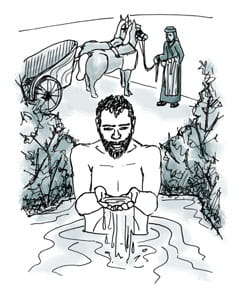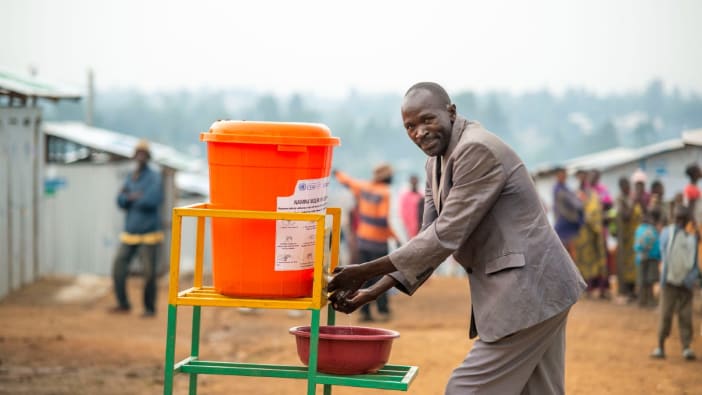Adapted from Hand in hand: Bible studies to transform our response to HIV, edited by Isabel Carter and Maggie Sandilands
Read 2 Kings 5:1-15
This story focuses on some really important ‘big’ people – Naaman (a great army commander), the King of Aram and the King of Israel. However, it is the humble people, the servants, who see and understand God at work and who are used to transform Naaman’s understanding. God’s prophet Elisha doesn’t provide the miraculous cure Naaman expects. Rather, Naaman has to humble himself and accept a simple and practical healing in which he has to participate.
God’s miraculous provision
The discovery of antiretroviral therapy (ART) has removed the ‘death sentence’ which was formerly associated with HIV and AIDS. It is possible to be returned to good physical health, through both treatment and prayer, while HIV remains in our body.
Healing is different from a cure. There is currently no known cure for HIV. However, God’s miracles occur in different ways for different people. We have prayed for God to help doctors find a way to treat HIV infection. ART is God’s miraculous provision, now available to many. All healing comes from God, and the God who is behind scientific discoveries is the same God behind spiritual healing.
How should we respond?
It is good to pray for healing for people with HIV while encouraging them to benefit fully from medical services. However, it is false and dangerous to tell people to have faith that God will cure them and that taking ART shows a lack of faith.
Those of us knowing or suspecting that we have HIV must take full responsibility not to pass it on to others. Those of us who do not have HIV must take full responsibility not to get it. As a church we need to pray with people and also encourage those of us living with HIV to obtain and continue with ART (even when we feel better). In the end, God heals all of us through death, ending suffering on earth and bringing us to eternal life with him.
For more information on Hand in hand: Bible studies to transform our response to HIV, see the Resources section.
Discussion questions
- What kind of healing was Naaman expecting from the prophet Elisha? Why was Naaman at first unwilling to follow Elisha’s advice?
- How did Naaman’s servants help him?
- Are there people among us like the people in the story? Who encourages people to go for testing and treatment? Who helps people to continue taking their ART?
- What kinds of treatment and healing has God provided for those of us living with HIV? Why is it important to continue with treatment and prayer even when we feel better?
- What does God want us, as his church, to do to promote health and healing for those of us living with HIV?










